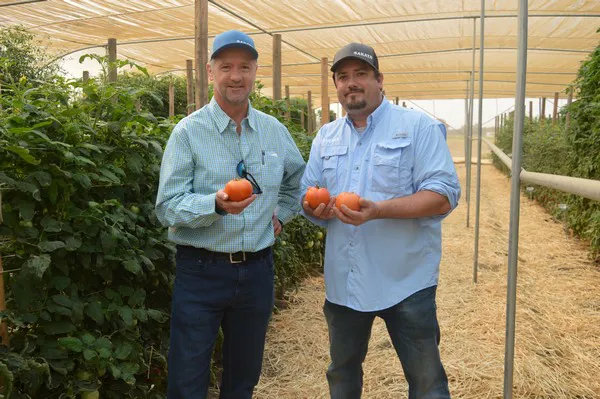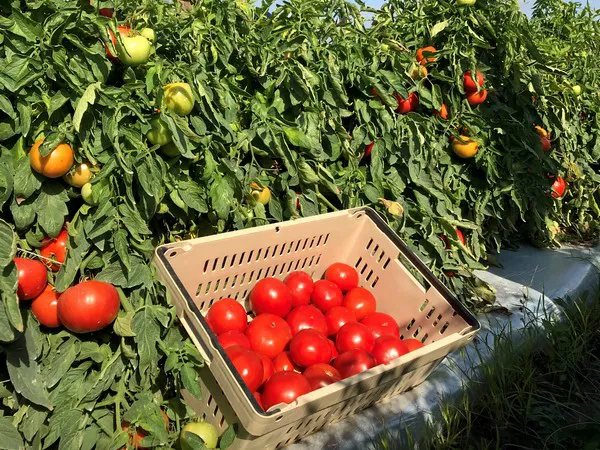Earlier this month, Sakata Seed America held its annual field days in Salinas (cold crops) and Woodland (warm crops), California. FreshPlaza attended the Woodland field trials and one of the featured crops was tomato variety STM2255 that was introduced to the US market in the spring of 2019. “It is a round, red tomato that was specifically developed within Sakata’s vine-ripe flavor program,” says Bryan Zingel with Sakata. “This versatile and adaptable salad variety has high yield potential, excellent size and very good vine-ripe flavor profile,” he added. Highlighting STM2255’s versatility, it can be used for both mature green as well as vine ripe markets.
Grown in US, Mexico, South America, and soon Europe
STM2255 is a determinate variety that is well adapted to many different climates and soil conditions. As a result, it has an international footprint. “It does well in the eastern part of the US, but is also grown in Mexico, South America and is in advanced development in Europe,” says Jeremy Sisson who recently joined Sakata's tomato breeding team. STM2255 has performed very well under stress and thrives at fertility inputs lower than weaker vigoured varieties, saving growers future input costs.
 Bryan Zingel and Jeremy Sisson showing STM2255.
Bryan Zingel and Jeremy Sisson showing STM2255.
Determinate vs Indeterminate varieties
Although indeterminate varieties are still a huge market in Mexico, in recent years, there has been a noticeable shift to determinate or semi-determinate tomato plants, particularly in saladettes. Determinates are shorter as the plants tend to stop growing as soon as they start to produce fruit. As a result, they are easier to manage from a labor point of view. However, as a general rule, determinates have lower quality than indeterminates.
“Significantly improving the quality of new products in the determinate segments to offer a solution to our customers is an important focus of our research and product development efforts,” mentioned Sisson. “With STM2255, we’ve been able to breed a variety that ticks all the boxes. It provides high yields, excels in extra-large fruit size to the top of the plant, has multiple disease resistances, and has a great flavor profile.”

Open variety
These traits are all of key importance to growers when considering the risks involved in growing a new variety. However, despite extensive trialing and development, there are still risks involved with growing something new. “The round market is generally conservative when it comes to introducing new varieties, as misalignment is costly and margins are tight,” commented Zingel. “STM2255 is actively gaining favor and many growers have made the switch. It’s a variety that is making significant noise in the market.” It is open to be grown by anyone and is widely used as a branded product under a company’s preferred name.
 For more information:
For more information:
Alicia Suits
Sakata Seed America, Inc.
Tel: +1 (408) 778-7758
asuits@sakata.com
www.sakata.com
